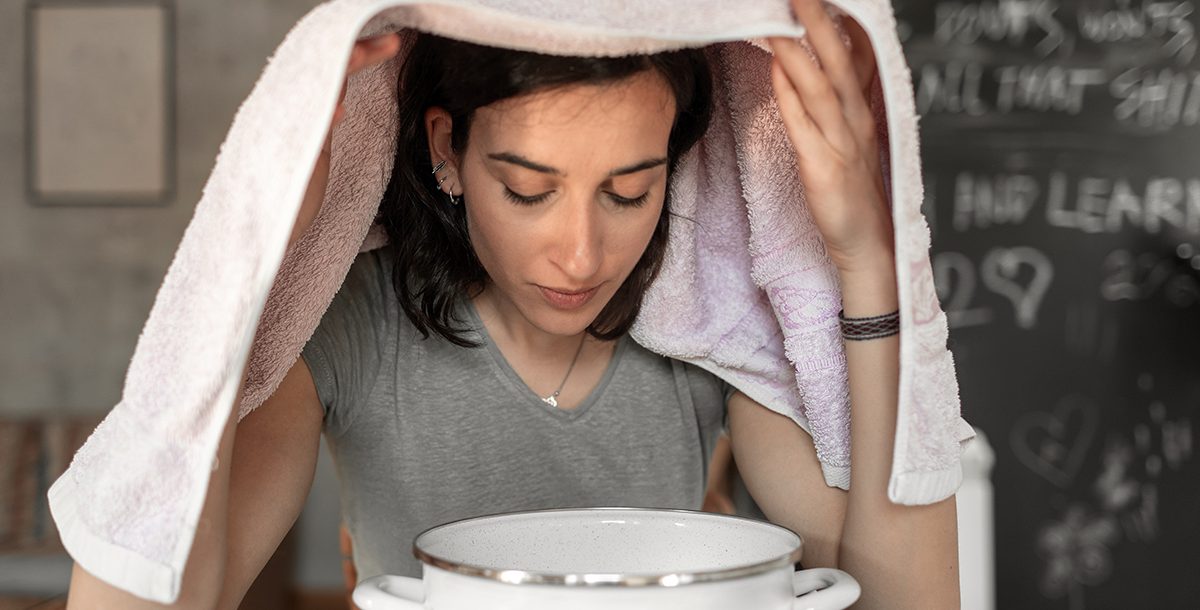Have you or one of your loved ones recently been diagnosed with COVID-19? If so, you might be wondering what you can do to help your body recuperate. Luckily for you, we’ve compiled a list of tips to help as you’re recovering from COVID-19 at home!
Tips for recovering from COVID-19 at home
Although there are no absolutes, most people recover from COVID-19 within about two weeks. While you’re fighting this virus, consider these healthy tips.
- Stay hydrated. This will help replace fluids in your body. It also helps thin out mucus and respiratory secretions to keep your lungs clear and reduce the chances you’ll get pneumonia. Most experts recommend drinking 2 to 4 ounces of liquid every 15 minutes, even if you’re not thirsty. Watch for signs of dehydration, which include dark urine and increased thirst.
- Eat a nutrient-rich diet. Nutrients will support your body’s functions and energy needs while you recover. If you’re not hungry or lose your sense of taste and/or smell, try making high-protein smoothies or soups that also help keep you hydrated.
- Sit in a steamy bathroom. Steam will help loosen secretions to make breathing easier. It’ll also help with a cough. You can get similar benefits from leaning over a bowl of steaming water or using a cool mist humidifier.
- Take medication. Over-the-counter medications can help ease sore throats and lower your fever. If you’re not sure about which ones are right for you, talk to your primary care provider and get their advice. They might also decide to prescribe you medication to aid in your recovery, depending on your symptoms and/or health risk factors.
- Get a pulse oximeter. This is a small device that’s easy to use. It attaches to your finger and lets you keep an eye on your oxygen levels. Normally, you should get a reading between 95 percent and 100 percent. So, if readings go lower, tell your doctor right away to see if you need to seek emergency care.
Know when to call for help
Most people experience very mild COVID-19 symptoms. However, others may have severe symptoms that need urgent attention. In either case, it’s important to monitor yourself throughout your illness. If symptoms worsen, call your primary care provider for guidance.
However, if you experience any emergency warning signs, it’s essential to call 911 or head to the nearest emergency room right away.
Emergency warning signs for COVID-19 include:
- Blue tint to the face or lips
- Confusion or disorientation
- Difficulty staying awake
- Oxygen levels of 90 percent or less on a pulse oximeter
- Pressure or pain in your chest
- Trouble breathing
Protect the people around you
Even after you start feeling better, you can still spread the COVID-19 virus to others.
Current guidance from the Centers for Disease Control and Prevention (CDC) advise those who are recovering from COVID-19 at home to stay there and away from others during their illness. You can return to normal activities 24 hours after your symptoms start to improve overall. Also, if a fever is present, it needs to be gone for 24 hours without the use of fever-reducing medicines.
Then, for the next five days, it is good to take additional prevention precautions. These include extra handwashing, wearing a well-fitted mask around others, keeping your distance from others and taking more breaks to step outside for fresh air.
Learn about the primary care services we provide at Bon Secours.





